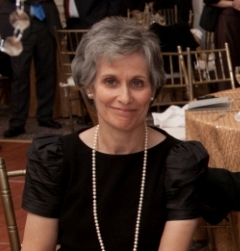Know Your Family History

In 1960, my mother was diagnosed with cancer. She had surgery during the summer when I was away at camp and I was not told. Later, I found out that my mother had some type of “women’s cancer.” She had a full recovery and so the topic was never again discussed. My mother died of natural causes 41 years later. A year after my mother’s diagnosis, her sister was diagnosed with cancer. She died two years later. I was never told what type of cancer my aunt had and I never thought to ask. Cancer was a dreaded disease and not something one talked about.
In the mid 1990’s, my aunt’s son, who is a physician, called to tell me about a new test for ovarian cancer- the test for the BRCA gene mutation. I couldn’t understand why this was so important until he told me that both my mother and aunt had had ovarian cancer. At the time, the test was not being offered in Washington where my mother lived. The trip to Philadelphia, where the test was being administered, would have been too difficult for my 92 year-old mother so she was not tested.
Then I was faced with a dilemma – should I be tested? After deciding that I would not have prophylactic surgery if I found that I was BRCA positive, I decided not to be tested for the gene. I instead opted to have a yearly pelvic sonogram and a yearly CA125 blood test. I followed this regimen religiously.
About three years ago, I finally decided to be tested for the BRCA gene mutation. The results came back negative. I felt a tremendous sense of relief until I spoke to my nephew who is an oncologist. He told me that the results didn’t prove much. Had my mother tested positive and I tested negative, it would be cause for rejoicing. Since my mother had never been tested, it was still possible that some other gene was linked to her cancer.
These words proved to be prophetic. A few months later I had my annual pelvic sonogram and a growth was found on one of my ovaries. It was suggested that I see an oncologist. Surgery was scheduled. The pathology indicated that the growth was malignant and I would need chemotherapy. The good news was that it was Stage 1A – only one ovary was affected and the cancer had not spread.
The early detection of my cancer was due to knowing my family history. That’s why my husband and I, through the Gorlin Family Foundation, support Sharsheret’s ovarian cancer program, and especially the campus education program. We want to get the message out that it is imperative to know your family history. Knowing my family history has made all the difference for me. Find out yours.
By: Sue Gorlin of Silver Spring, Maryland, Sharsheret Peer Supporter
